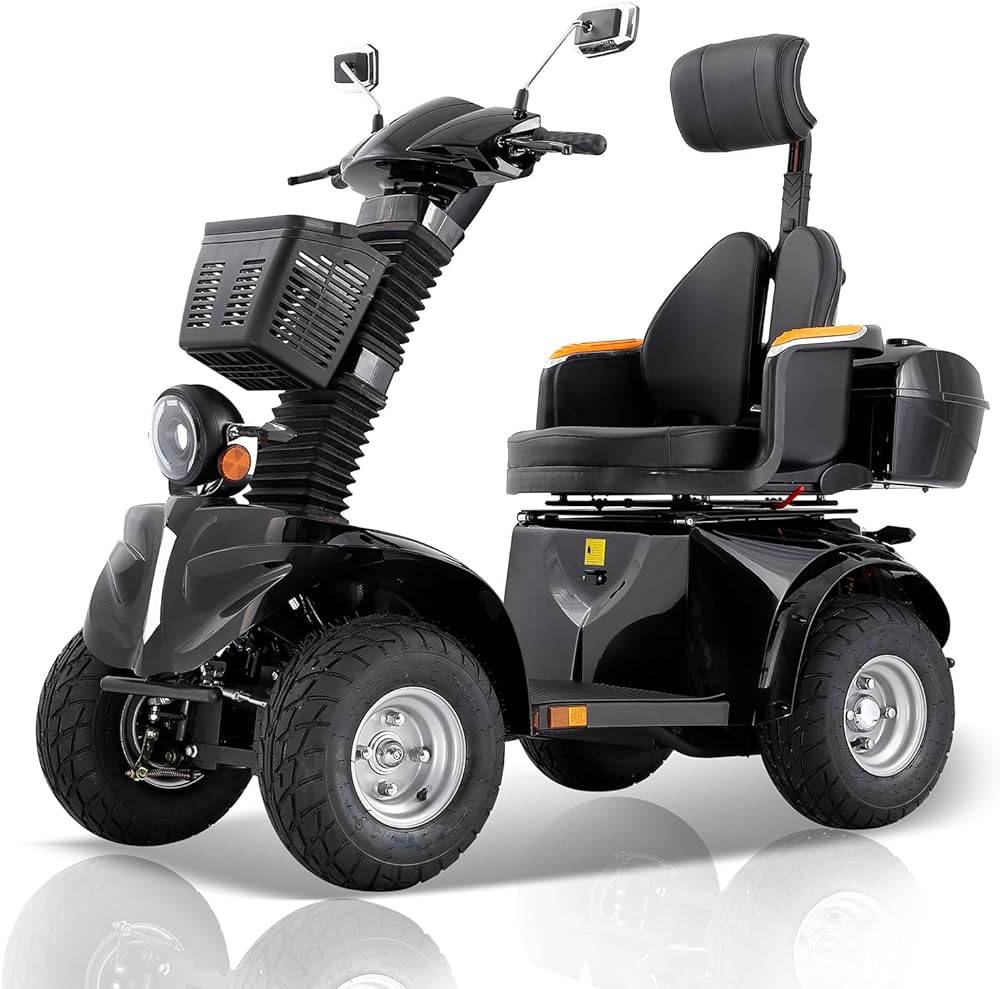Welcome to the article where we explore the question, “Are rental mobility scooters suitable for use in hospitals?” With the increasing demand for mobility aids, hospitals are considering renting out scooters to help patients and visitors navigate the facility. In this article, we will discuss the benefits and considerations of using rental scooters in hospital settings, as well as potential limitations to keep in mind. Whether you are a healthcare professional or a patient seeking assistance, read on to learn more about the feasibility of rental mobility scooters in hospitals.
Are Rental Mobility Scooters Suitable For Use In Hospitals?
Have you ever wondered if rental mobility scooters are a viable option for use in hospitals? Whether you are a healthcare professional, a patient, or a visitor, the use of mobility scooters in hospital settings can provide convenience and accessibility. Let’s explore whether rental mobility scooters are suitable for use in hospitals.
Benefits of Using Rental Mobility Scooters in Hospitals
Rental mobility scooters can offer a range of benefits for individuals navigating hospitals. These benefits include increased independence, enhanced mobility, and reduced physical exertion. By using a rental mobility scooter, you can move around the hospital more easily and comfortably, avoiding fatigue and strain on your body.
Accessibility and Convenience
One of the key advantages of using a rental mobility scooter in a hospital setting is improved accessibility and convenience. Hospitals can be large and complex environments to navigate, especially for individuals with mobility issues. With a rental mobility scooter, you can easily move from one department to another, attend appointments, and visit loved ones without the need for assistance.
Cost-Effective Solution
Renting a mobility scooter for use in a hospital can be a cost-effective solution for short-term mobility needs. Instead of purchasing a scooter outright, which can be expensive, you can rent one for the duration of your hospital stay. This can help reduce the financial burden while still providing you with the mobility assistance you need during your time in the hospital.
Types of Rental Mobility Scooters
There are different types of rental mobility scooters available for use in hospitals, depending on individual needs and preferences. These include:
- Standard Mobility Scooters: These scooters are suitable for indoor and outdoor use, providing a stable and comfortable ride.
- Compact Mobility Scooters: Ideal for navigating tight spaces and corridors within the hospital, these scooters offer easy maneuverability.
- Heavy-Duty Mobility Scooters: Designed for individuals with larger body frames or those who require additional support, these scooters can accommodate heavier weights.
Safety Considerations
When using a rental mobility scooter in a hospital, safety should always be a top priority. It is essential to familiarize yourself with the operation of the scooter and adhere to safety guidelines provided by the rental company. Some key safety considerations include:
- Speed Control: Always operate the scooter at a safe speed, especially in crowded areas or hallways.
- Obstacle Awareness: Be vigilant of obstacles such as doors, furniture, or other individuals while navigating the hospital.
- Battery Life: Ensure that the scooter is fully charged before each use to avoid unexpected breakdowns.
- Braking System: Familiarize yourself with the braking system of the scooter and practice using it effectively.
- User Manual: Refer to the user manual provided by the rental company for instructions on proper use and maintenance.
Rental Policies and Procedures
Before renting a mobility scooter for use in a hospital, it is important to familiarize yourself with the rental policies and procedures. Some key considerations include:
- Rental Duration: Determine the length of time you will require the scooter and ensure that the rental period aligns with your hospital stay.
- Delivery and Pickup: Confirm whether the rental company offers delivery and pickup services to the hospital or if you need to arrange transportation.
- Insurance Coverage: Inquire about insurance coverage for the scooter in case of damage or theft during your rental period.
- Deposit Requirements: Check if a deposit is required when renting the scooter and how it will be refunded upon return.
- Maintenance and Support: Find out if the rental company provides maintenance services or support in case of technical issues with the scooter.
Rental Mobility Scooter Etiquette in Hospitals
When using a rental mobility scooter in a hospital, it is important to be mindful of other patients, visitors, and healthcare staff. Follow these etiquette guidelines to ensure a positive and respectful experience:
- Yield to Pedestrians: Always yield to pedestrians in hallways and common areas to avoid collisions and ensure safety.
- Parking Considerations: Park the scooter in designated areas or spaces to avoid obstructing pathways or entrances.
- Noise Control: Be mindful of noise levels when operating the scooter, especially in quiet or sensitive areas of the hospital.
- Navigational Awareness: Maintain awareness of your surroundings and be considerate of others while maneuvering the scooter through crowded areas.
- Courtesy and Respect: Treat other hospital occupants with courtesy and respect, acknowledging their needs and space while using the scooter.
Alternative Mobility Options in Hospitals
In addition to rental mobility scooters, hospitals may offer alternative mobility options for individuals with varying needs. Some of these options include:
- Wheelchairs: Hospitals typically provide wheelchairs for patients and visitors who require mobility assistance.
- Walker or Rollator: For individuals who need minimal support for walking, a walker or rollator can provide stability and balance.
- Cane or Crutches: Individuals with temporary mobility issues may opt for a cane or crutches to assist with walking.
Conclusion
In conclusion, rental mobility scooters can be a suitable and practical option for use in hospitals, providing individuals with increased independence, accessibility, and convenience. By choosing the right type of scooter, adhering to safety guidelines, familiarizing yourself with rental policies, and practicing proper scooter etiquette, you can navigate the hospital environment with ease and comfort. Whether you are a patient, visitor, or healthcare professional, rental mobility scooters can enhance your hospital experience and improve overall mobility during your stay.



